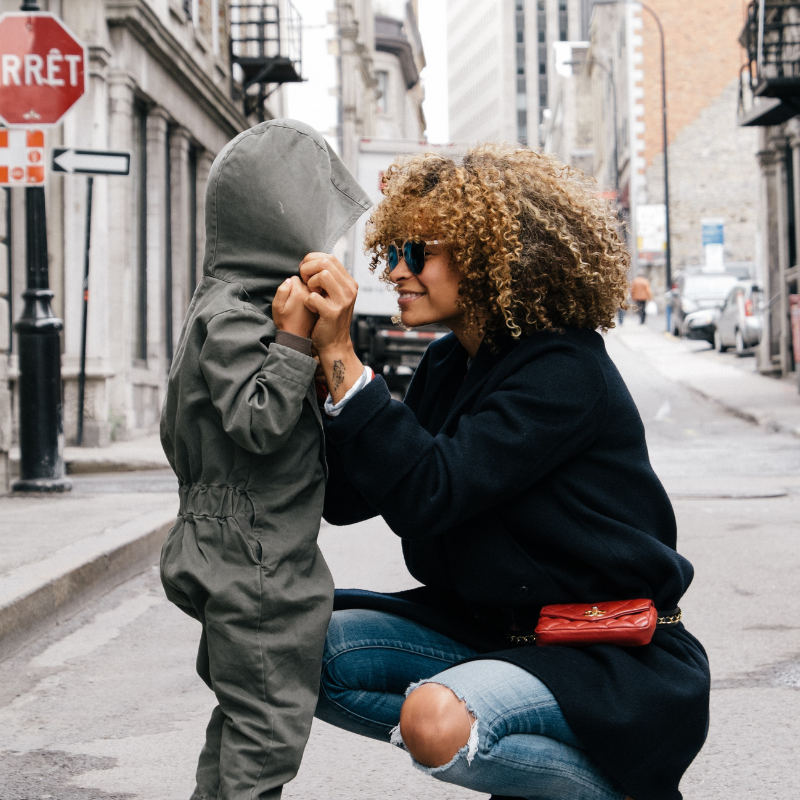Parenting Advice: The Best of the Best (As Chosen By British Parents)
updated on Sep 22, 2018

What’s the best parenting advice you’ve ever received? Micro-learning platform Blinkist share parents' most highlighted advice, as chosen by UK parents
There’s no denying it: being a parent can be challenging. How do you know for sure that you’re making the right decisions for both you and your child? Should you really push them to play a musical instrument they excel at but hate? Does everyone need to take up a sport? Will signing them up for extra tutoring be a sign of support, or will it risk them thinking you don’t believe in them? Deciding what you will do can be hard – especially as parenting can feel like we’re learning as we go (and discovering how to enjoy being a parent against the odds if we can).
Becoming a parent for the first time is stressful enough. With one in 10 parents reporting feeling disconnected from their children, feeling constantly exhausted, tired and overwhelmed, finding advice that is both supportive and helpful can be key. With nearly two-thirds of mothers feeling they have been ‘mum-shamed’ by other parents, partners, family and friends, it’s no wonder more and more parents want to ditch the advice from friends and well-meaning family, and stick to reading up on advice from other reputable sources and experts.
Ben Hughes, Head of Content at Blinkist and father of two said:
"When it comes to parenting, even if you are the first one amongst your friends to have a child, everyone from your family, through to friends and colleagues, will give you advice on how to raise your child.
While a lot of this advice is great, it can be overwhelming, especially when you are already balancing a million things at once. The great thing about reading parenting books is that they allow you to filter through the noise and focus on the advice you actually need, whether it’s about tackling a picky eater or making sure your child doesn’t spend too much time online. You can also dip in and out of the book at your own leisure, which is especially convenient for a busy parent.
You can be assured in the knowledge that the books are written by experts and the methods they describe have been tried and tested by thousands of parents; at the very least, they are worth a try."
Through analysing the most highlighted passages in its parenting books amongst their 7 million UK and US users, micro-learning platform Blinkist has discovered the UK’s top parenting advice – as chosen and used by parents. If you’re looking for a helping hand and wise words of advice when things are getting tough, these pieces of advice could help.
If you want your child to grow and learn from his mistakes, offer helpful praise and never use labels
How to Talk So Kids Will Listen & Listen So Kids Will Talk
Adele Faber and Elaine Mazlish

A useful piece of advice, especially if you are not sure how you want to tackle discussing with your child a mistake that they have made. While discipline is individual to each family and parent, praise definitely shouldn’t be.
When your child does something right, whether it is following a mistake or not, make sure to praise them and commend them on each part of the task, so that they know you’ve paid attention to them and valued their work. Praise can be a vital contributor towards helping children build positive, healthy feelings of self-worth and self-esteem.
Having less stuff will help you be a better parent
Minimalist Parenting
Asha Dornfest and Christine Koh
This can be taken both literally and metaphorically. For example, don’t overwhelm your child with a multitude of developmental toys and games. Instead, choose a few to focus on during each developmental stage. This way, your child will play with the toys and advance with them, meaning that when they are bored you can move on to the next recommended set, without having endless clutter in the house.
In a similar way, it isn’t a good idea to overwhelm yourself and your child with a variety of parenting techniques, extracurricular activities and studying techniques. Once you know what you and your child like, choose a select few that work for you: a manageable amount of extracurricular activities a week, one studying technique that works with the kind of learner they are and one parenting technique for both parents. This will leave both you and your child feeling more relaxed, entertained and never overwhelmed.
Learning to deal with mistakes is important for character development
How Children Succeed
Paul Tough
The key to learning from mistakes is that this doesn’t just apply to the child, but also to you as the parent. If you know that certain behaviours and attitudes provoke and upset your child, avoid making them in the future. Not only will your child be happier, but they will also learn from you.
Similarly, when your child makes a mistake, don’t shout at them, instead endeavour to explain the mistake to them in a calm and strict manner. This way, they will retain the information far better.
Schools should give students eight core competencies, starting with curiosity, creativity and criticism

Creative Schools
Ken Robinson and Lou Aronica
This is especially important to remember when you are choosing a school for your child. All schools are different and will prioritise different elements of education. However, curiosity, creativity and constructive criticism are fundamentals that will help your child to succeed in later life and will avoid having low self-confidence.
The sooner they become familiar with the basics of these principles, the more they will begin to rely on them, making them more creative and curious, as well as more receptive to criticism in later life.
Our brains comprise two different hemispheres that need to be balanced
The Whole-Brain Child
Daniel J. Siegel and Tina Payne Bryson
A fundamental for any parent who feels that their child’s strengths are entirely different to their own. If you are a doctor and your child wants to be a writer, you need to respect their choice and their right to experiment with their own strengths. The brain has two hemispheres and their dominance often isn’t genetic. Respect your child, encourage them to pursue their strengths and celebrate their successes with them.
Don't smother your children, but learn how to really say no
Bringing Up Bébé
Pamela Druckerman
Children should be allowed to explore and make mistakes, as well as learn from them. Don’t overwhelm them with rules - this will leave them feeling confused and afraid of upsetting you. Instead, decide on your own fundamental rules and work hard to make sure that these are followed.

Discover more practical and helpful advice about parenting, supporting children, teens and young people, and more under Happiful Kids.
For more parenting tips and advice from expert counsellors, visit Counselling Directory.
Uncover life-changing ideas and read all of the great books talked about above (and more) with Blinkist.

